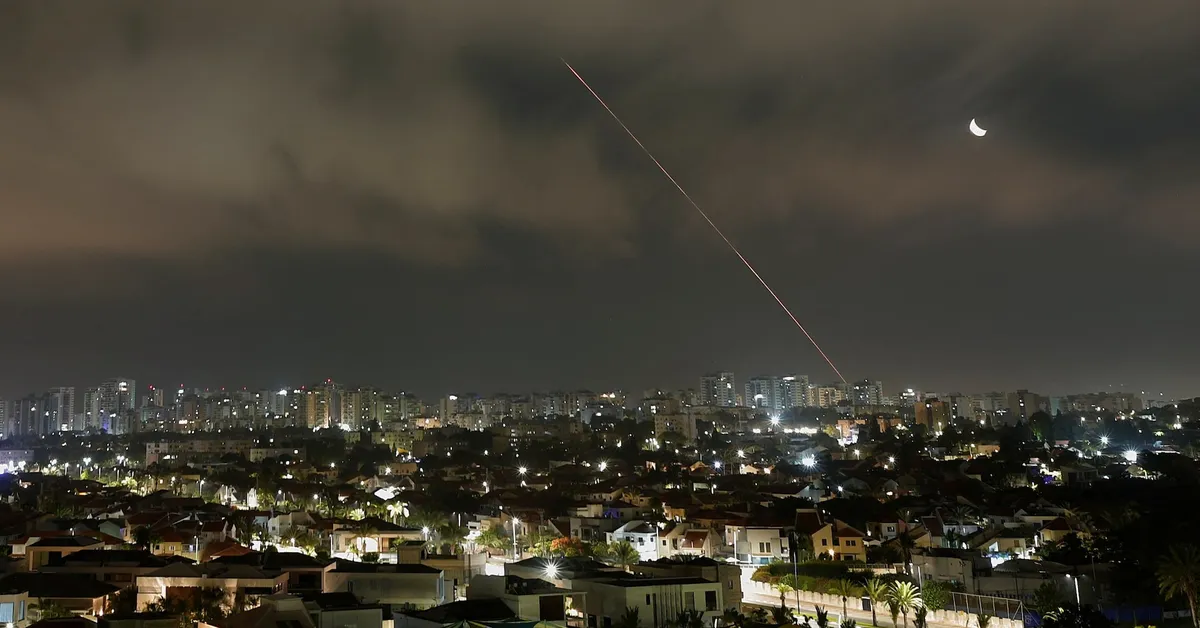
Early on Saturday, June 21, a significant escalation occurred between Iran and Israel, following Tehran's firm stance against negotiating its nuclear program under perceived threats. The renewed hostilities unfolded just hours after Iran reiterated its refusal to engage in talks while facing aggression. This situation coincided with ongoing diplomatic efforts in Europe aimed at maintaining dialogue.
At approximately 2:30 a.m. local time in Israel (2330 GMT on Friday), the Israeli military issued warnings of an incoming missile barrage attributed to Iran. This warning activated air raid sirens across central Israel, notably in Tel Aviv and the Israeli-occupied West Bank. The skies over Tel Aviv lit up with interceptions, as explosions resonated throughout the metropolitan area, indicating Israel’s robust air defense systems were in operation.
In retaliation, the Israeli military launched a series of attacks targeting missile storage and launch facilities in Iran. Concurrently, sirens were reported in southern Israel, according to Magen David Adom, the national emergency service. An Israeli military spokesperson noted that Iran had fired five ballistic missiles, yet there were no immediate reports of impacts or casualties. However, images released by emergency services depicted a fire on the roof of a multi-storey residential building in central Israel, attributed to debris from an intercepted missile.
The conflict has resulted in significant casualties on both sides. According to the Human Rights Activists News Agency, a U.S.-based organization monitoring human rights in Iran, Israeli airstrikes have claimed the lives of 639 individuals in Iran, including high-ranking military officials and nuclear scientists. In contrast, Israeli sources report that 24 civilians have died from Iranian missile attacks. These figures, however, remain unverified by independent sources.
The ongoing tensions have prompted diplomatic efforts, although progress remains elusive. Iran has consistently targeted Tel Aviv, a major urban center with a population of around 4 million, which serves as Israel's economic and military hub. Israel has claimed to have struck numerous military targets in Iran, including missile production sites and facilities linked to nuclear weapons development.
Iranian Foreign Minister Abbas Araqchi stated that negotiations with the U.S. are off the table until Israeli aggression ceases. Nevertheless, he attended discussions in Geneva with European foreign ministers, who are eager to find a pathway back to diplomacy. In a related statement, U.S. President Donald Trump indicated he would take up to two weeks to evaluate the possibility of U.S. involvement in the conflict, emphasizing the complexity of negotiating while one side appears to be winning.
The Geneva talks yielded minimal advancements, with Trump expressing skepticism about the potential for a ceasefire. He pointed out that Iran prefers to negotiate directly with the U.S., sidelining Europe in the process. Meanwhile, reports indicate that hundreds of U.S. citizens have evacuated Iran since the onset of the air conflict, as noted in a U.S. State Department cable.
Israel's ambassador to the United Nations, Danny Danon, reiterated his nation's commitment to ongoing attacks until the perceived nuclear threat from Iran is neutralized. Conversely, Iran's U.N. envoy, Amir Saeid Iravani, called for urgent action from the Security Council, expressing concern over the potential for U.S. military involvement. Both Russia and China have urged immediate de-escalation in the region.
As the situation develops, a senior Iranian official has indicated a willingness to discuss limitations on uranium enrichment. However, Iran firmly opposes any proposals that would prevent it from enriching uranium entirely, particularly in light of ongoing Israeli strikes.
The conflict between Iran and Israel continues to evolve, with the potential for broad implications on regional stability and international relations, particularly concerning nuclear proliferation.